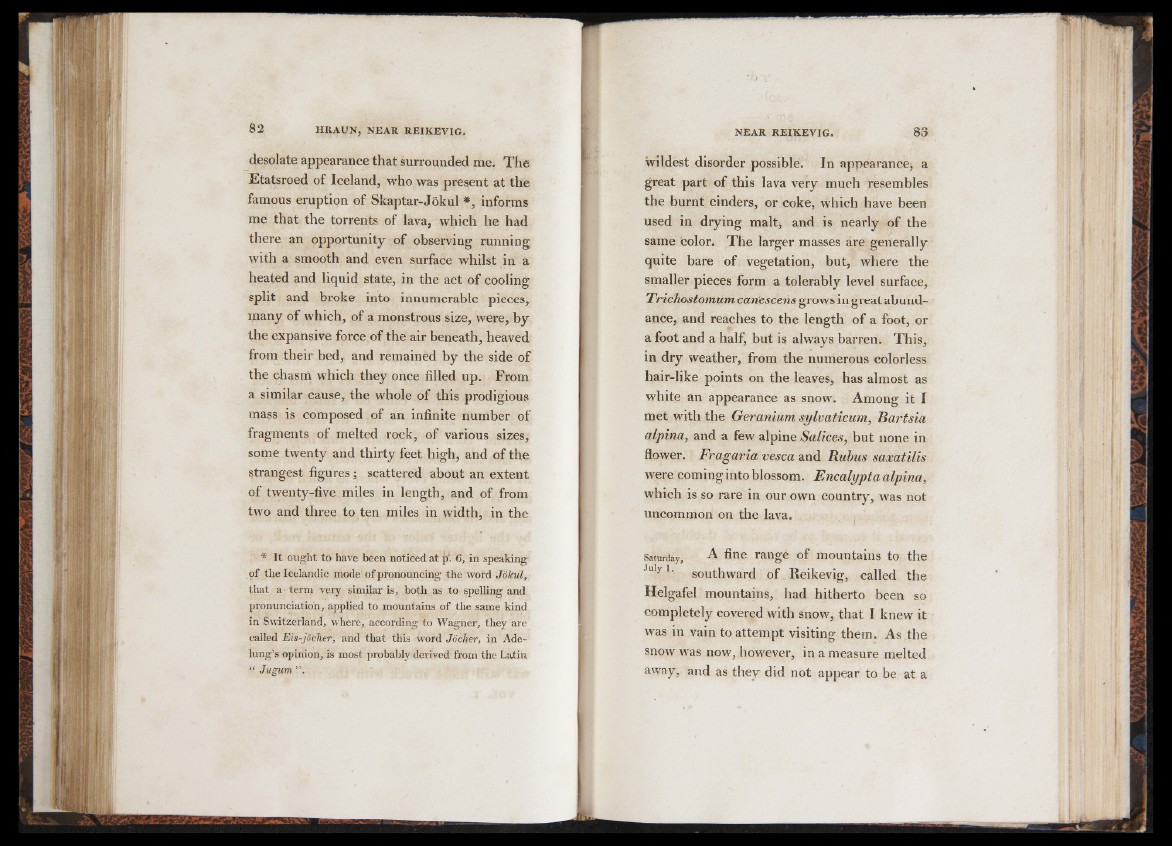
desolate appearance that surrounded me. The
Etatsroed of Iceland, who was present at the
famous eruption of Skaptar-Jokul *, informs
me that the torrents of lava, which he had
there an opportunity of observing running
\vith a smooth and even surface whilst in a
heated and liquid state, in the act of cooling
split and broke into innumerable pieces,
many of which, of a monstrous size, were, by
the expansive force of the air beneath, heaved
from their bed, and remained by the side of
the chasm which they once filled up. From
a similar cause, the whole of this prodigious
mass is composed of an infinite number of
fragments of melted rock, of various sizes,
some twenty and thirty feet high, and of the
strangest figures; scattered about an extent
of twenty-five miles in length, and of from
two and three to ten miles in width, in the
* It ought to have been noticed at pt 6, in speaking
of the Icelandic mode of pronouncing the word Jokul,
that a- term very similar is, both as to spelling and
pronunciation, applied to mountains of the same kind
in Switzerland, where, according- to Wagner, they are
called Eis-jocher, and that this word Jocher, in Ade-
lung’s opinion, is most probably derived from the Latin
“ Jugum
wildest disorder possible. In appearance* a
great part of this lava very much resembles
the burnt cinders, or coke, which have been
used in drying malt* and is nearly of the
same color. The larger masses áre generally
quite bare of vegetation, but, where the
smaller pieces form a tolerably level surface,
Trichostomum canescens grows in great abundance,
and reaches to the length of a foot, or
a foot and a half, but is always barrern This,
in dry weather, from the numerous colorless
hair-like points on the leaves* has almost as
white an appearance as snow¿ Among it I
met with the Geranium sylvaticum, Bartsia
alpina, and a few alpine Saltees, but none in
flower. Fragaria vesca and Rubus saxatilis
were coming into blossom. Encalypta alpina,
which is so rare in our own country, was not
uncommon on the lava.
Saturday, A fine range of mountains to the
July1' southward of Reikevig, called the
Helgafel mountains, had hitherto been so
completely covered with snow, that I knew it
was in vain to attempt visiting them. As the
snow w'as now, however, in a measure melted
away, and as they did not appear to be at a